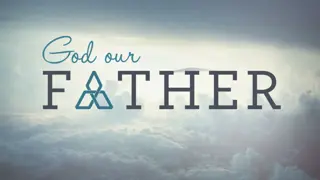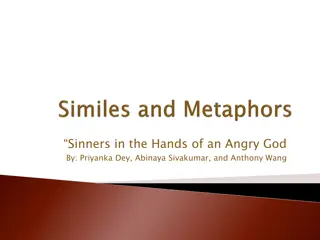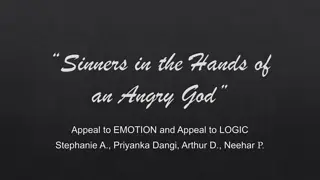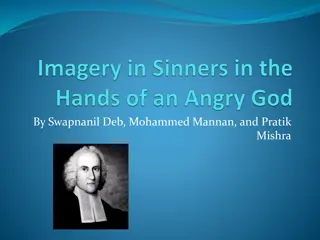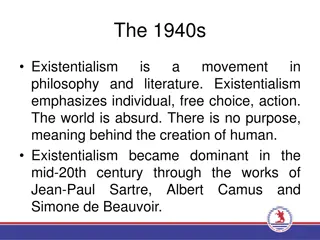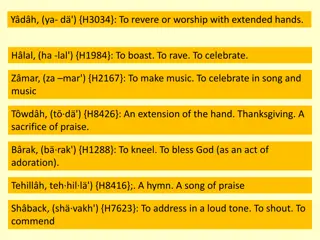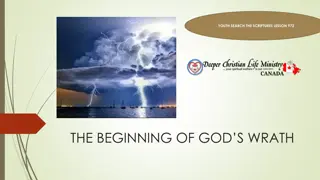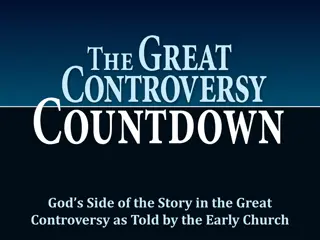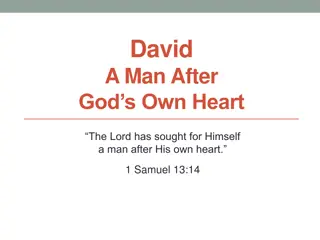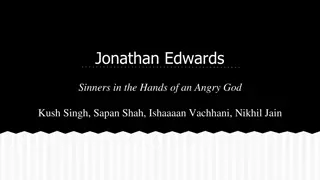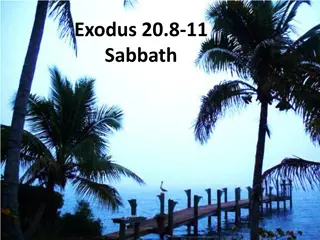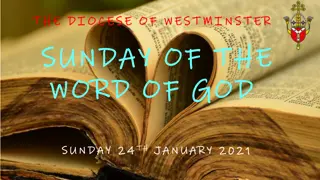The Great Awakening: A Religious Revival in Colonial America
The Great Awakening was a significant religious revival that occurred in colonial America between the 1730s and the 1770s. Led by influential figures like Jonathan Edwards, this movement revitalized religious piety and was a response to the Age of Enlightenment. It spread across the American colonies and played a crucial role in shaping the spiritual landscape of the time.
Download Presentation

Please find below an Image/Link to download the presentation.
The content on the website is provided AS IS for your information and personal use only. It may not be sold, licensed, or shared on other websites without obtaining consent from the author. Download presentation by click this link. If you encounter any issues during the download, it is possible that the publisher has removed the file from their server.
E N D
Presentation Transcript
Sinners in the Hands of an Angry God Jonathan Edwards
Historical Context Sinner s at the Hands of an Angry God is a Sermon written and delivered to his congregation in Enfield Massachusetts in July 1741 by Calvinist minister Jonathon Edwards.
Historical Context As was customary in 18th-century New England, the sermon was printed and copies were distributed to a wide audience. It has proven to be an enduring expression of the revivalist Calvinist theology and preaching that was espoused by many prominent figures in The Great Awakening.
The Great Awakening What historians call "the Great Awakening" can best be described as a revitalization of religious piety that swept through the American colonies between the 1730 s and the 1770 s.
The Great Awakening That revival was part of a much broader evangelical movement taking place simultaneously in Europe, most notably in England, Scotland, and Germany. A new Age of Faith rose to counter the currents of The Enlightenment or the Age of Reason.
The Great Awakening The intellectual movement of which advocated reason and science as the primary basis of authority. This revolution of knowledge was inspired by the likes of Galileo and Newton, in a climate of increasing disaffection with repressive rule.
The Great Awakening In colonial America, the frontier in spread out into the wilderness, making both communication and church discipline difficult. Because people often lived great distances from a parish church, membership and participation suffered.
The Great Awakening On the frontier concern for theological issues faded before the concern for survival and wrestling a living from a hard and difficult land.
The Great Awakening Because the individual was largely on his own, and depended on himself for survival, authoritarian structures of any sort met with great resistance. As a result, by the second and third generations, the vast majority of the population was outside the member-ship of the church.
The Great Awakening With the publication of Isaac Newton's Principia Principia Mathematica Mathematicain the 17th century, traditional Christianity was challenged. Implicit in the work of Newton and others was the assumption that human beings had the ability to discover the secrets of the universe and could thereby exert some control over their own destiny.
The Great Awakening If men could discover and read the blueprints whereby God had made and ordered the world-- (creation). What would be the result?
The Great Awakening The consequence was a lessening of the gulf between God and man. This tended to undercut traditional Calvinism which held that the gap between the Deity and his creatures was quite large. This affirmation of human ability and reason had an extremely corrosive effect on the reigning orthodoxy which held that one's destiny was solely in God's hands.
The Great Awakening With a growing emphasis on man and his morality, religion becoming more rational and less emotional. The Great Awakening was a church driven backlash, and a drive to regain God through the church. One of the leaders of this movement was Jonathon Edwards.
The Great Awakening Edwards sermon Sinners in the Hands of an Angry God used the image of a spider dangling by a web over a hot fire to describe the human predicament. His point was that at any moment, our hold on life could break and we'd be plunged into fires of eternal damnation.
Assignments All assignments can be found in your packet. It is due on Thursday, 2/15 and Friday, 2/16. 2/16 is the last day of cycle



